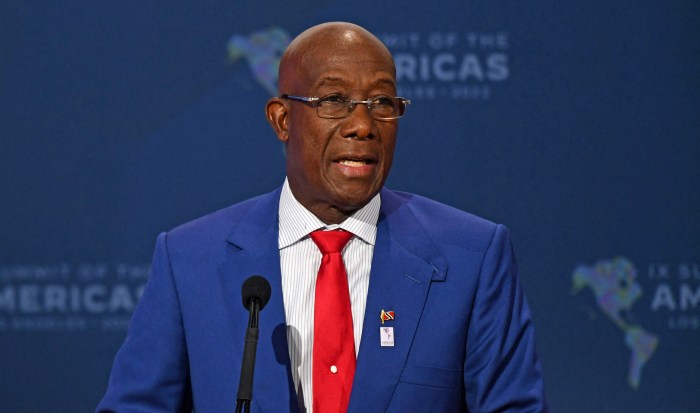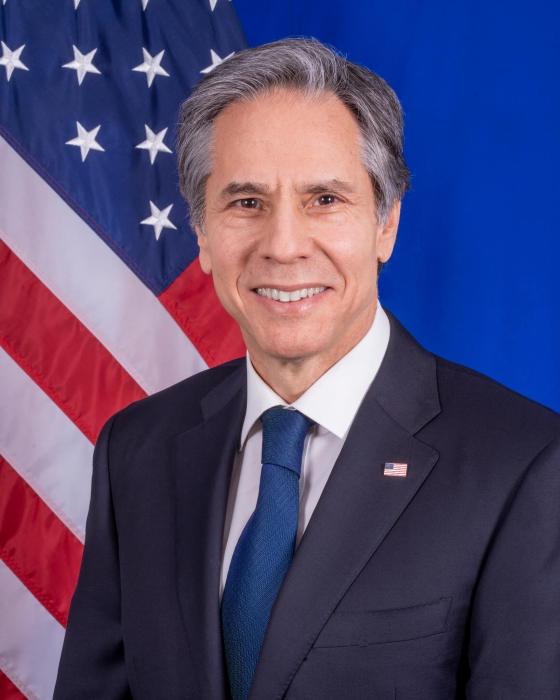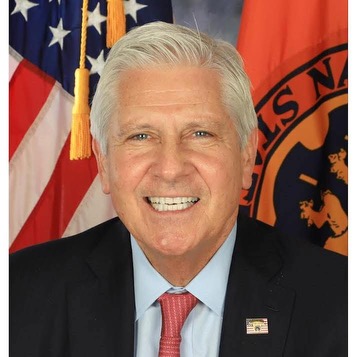New York Attorney General Letitia James on Wednesday filed a lawsuit against Facebook, Inc., alleging that the company has and continues today to illegally stifle competition to protect its monopoly power.
The lawsuit alleges that, over the last decade, the social networking giant illegally acquired competitors in a predatory manner and cut services to smaller threats — depriving users from the benefits of competition and reducing privacy protections and services along the way — all in an effort to boost its bottom line through increased advertising revenue.
Attorney General James leads a bipartisan coalition of 48 attorneys general from around the nation in filing Wednesday’s lawsuit to stop Facebook’s anticompetitive conduct.
“For nearly a decade, Facebook has used its dominance and monopoly power to crush smaller rivals and snuff out competition, all at the expense of everyday users,” James said. “Today, we are taking action to stand up for the millions of consumers and many small businesses that have been harmed by Facebook’s illegal behavior.
“Instead of competing on the merits, Facebook used its power to suppress competition, so it could take advantage of users and make billions by converting personal data into a cash cow,” she added. “Almost every state in this nation has joined this bipartisan lawsuit because Facebook’s efforts to dominate the market were as illegal as they were harmful.
“Today’s suit should send a clear message to Facebook and every other company that any efforts to stifle competition, reduce innovation, or cut privacy protections will be met with the full force of our offices,” James continued.
Since 2004, she said Facebook has operated as a personal social networking service that facilitates sharing content online without charging users a monetary fee, but, instead, provides these services in exchange for a user’s time, attention and personal data.
James said Facebook then monetizes its business by selling advertising to firms that attach immense value to the user engagement and highly targeted advertising that Facebook can deliver due to the vast trove of data it collects on users, their friends and their interests.
In an effort to maintain its market dominance in social networking, the New York attorney general said Facebook employs a variety of methods to impede competing services and — as chairman, chief executive officer and controlling shareholder Mark Zuckerberg has stated — to “build a competitive moat” around the company.
James said the two most utilized strategies have been to acquire smaller rivals and potential rivals before they could threaten Facebook’s dominance and to suffocate and squash third-party developers that Facebook invited to utilize its platform — allowing Facebook to maintain its monopoly over the social networking market and make billions from advertising.
“Facebook’s unlawful monopoly gives it broad discretion to set the terms for how its users’ private information is collected and used to further its business interests,” she said.
James said that, when Facebook cuts off integration to third-party developers, users cannot easily move their own information — such as their lists of friends — to other social networking services.
“This decision forces users to either stay put or start their online lives from scratch, if they want to try an alternative,” she said. “Because Facebook users have nowhere else to go, the company is now able to make decisions about how to curate content on the platform and use the personal information it collects from users to further its business interests, even if those choices conflict with the interests and preferences of Facebook users.”
Additionally, while consumers initially turned to Facebook and other apps now owned by the company seeking privacy protection and control over their data — Facebook’s “secret sauce” — many of those protections are now gone, James said.
She said the harm to consumers over the last decade comes as a direct result of Facebook’s acquisition of smaller firms that pose competitive threats.
The New York attorney general said Facebook employs unique data-gathering tools to monitor new apps — “all in an effort to see what is gaining traction with users.”
She said that data helps Facebook select acquisition targets that pose the greatest threats to Facebook’s dominance.
Once selected, James said Zuckerberg and Facebook offer the heads of these companies’ vast amounts of money — that greatly inflate the values of the apps — “all in hopes of avoiding any competition for Facebook in the future.”
When it came to startups, she said Zuckerberg has observed, that if these companies were not inclined to sell, “they’d have to consider it” if Facebook offered a “high enough price.”
James said the elimination of competitive alternatives means users have no alternative to Facebook, “fueling its unfettered growth without competition and further entrenching its position.”
She said the two most obvious examples of this successful strategy were Instagram and WhatsApp — “both which posed a unique and dire threat to Facebook’s monopoly.”
“Facebook and Zuckerberg saw Instagram as a direct threat quickly after the company launched,” said James, stating that, after initially trying to build its own version of Instagram that gained no traction, “Zuckerberg admitted, in early 2012, that Facebook was ‘very behind’ Instagram and a better strategy would be ‘to consider paying a lot of money’ for the photo-sharing app in an effort to ‘neutralize a potential competitor.’”
A few months later, in April 2012, she said Facebook acquired Instagram for $1 billion, “despite the company not having a single cent of revenue and valuing itself at only $500 million.”
James said Zuckerberg offered Instagram’s owners double the valuation that Instagram came up with, “even though Zuckerberg previously described the initial $500 million value as ‘crazy,’” James said.
She said the mobile messaging app, WhatsApp, also posed “a unique threat to Facebook’s growth, giving users the ability to send messages on their mobile devices both one-to-one and to groups.”
While Facebook focused on several emerging mobile messaging services, James said WhatsApp was viewed as the “category leader”, with over 400 million active users worldwide in 2014, and the one that could potentially provide the greatest threat.
James charged that Facebook feared WhatsApp eroding its monopoly power, stating WhatsApp or similar products posed “the biggest competitive threat we face as a business.”
She said Facebook was also concerned that WhatsApp could ultimately be bought by a competing behemoth that had previously shown interest in social networking — namely Google.
James said this led Facebook, in February 2014, to acquire WhatsApp for nearly $19 billion — “wildly more than the extravagant price Zuckerberg had recommended paying a few months earlier and the $100 million another competitor offered to buy the company two years earlier.”
As laid out in Wednesday’s complaint, she said Facebook targets competitors with a “‘buy or bury’ approach: if they refuse to be bought out, Facebook tries to squeeze every bit of oxygen out of the room for these companies.
“To facilitate this goal, Facebook has used an ’open first–closed later’ strategy to stop competitive threats, or deter them from competing, at the inception,” said James, stating that Facebook is specifically charged with violating Section 2 of the Sherman Act, in addition to multiple violations of Section 7 of the Clayton Act.
Attorney General James and the coalition ask the court to halt Facebook’s “illegal, anticompetitive conduct” and block the company from continuing this behavior in the future.
Additionally, the coalition asks the court to restrain Facebook from making further acquisitions valued at or in excess of $10 million without advance notice to the state of New York and other plaintiff states.
Further, the court is asked to provide any additional relief it determines is appropriate, including the divestiture or restructuring of illegally acquired companies, or current Facebook assets or business lines.
The complaint was filed in the US District Court for the District of Columbia.
Separately, but in coordination with the coalition led by James, the Federal Trade Commission (FTC) also on Wednesday filed a complaint against Facebook in the US District Court for the District of Columbia.
James leads this lawsuit with an executive committee comprising the attorneys general of California, Colorado, Florida, Iowa, Nebraska, North Carolina, Ohio, Tennessee, and the District of Columbia.
The executive committee is joined by the attorneys general of Alaska, Arizona, Arkansas, Connecticut, Delaware, Hawaii, Idaho, Illinois, Indiana, Kansas, Kentucky, Louisiana, Maine, Maryland, Massachusetts, Michigan, Minnesota, Mississippi, Missouri, Montana, Nevada, New Hampshire, New Jersey, New Mexico, North Dakota, Oklahoma, Oregon, Pennsylvania, Rhode Island, Texas, Utah, Vermont, Virginia, Washington, West Virginia, Wisconsin, Wyoming and the territory of Guam.




















